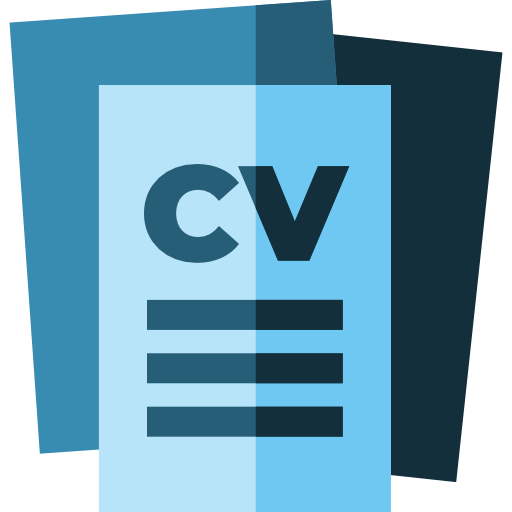Chapter 1: Introduction to Go
- Lesson 1: What is Go?
- Lesson 2: History of Go and Its Philosophy
- Lesson 3: Applications and Use Cases of Go
- Lesson 4: Setting Up the Go Environment
- Lesson 5: Writing Your First Go Program
- Lesson 6: Introduction to Go Syntax
- Lesson 7: Working with Go Tools (go run, go build, go fmt)
Chapter 2: Variables, Data Types, and Constants
- Lesson 1: Declaring and Initializing Variables
- Lesson 2: Data Types in Go: int, float, string, bool, etc.
- Lesson 3: Type Inference and Short Variable Declarations
- Lesson 4: Constants and iota
- Lesson 5: Pointers in Go
Chapter 3: Operators in Go
- Lesson 1: Arithmetic Operators
- Lesson 2: Comparison and Logical Operators
- Lesson 3: Bitwise and Shift Operators
- Lesson 4: Assignment Operators
- Lesson 5: Increment and Decrement Operators (and Go's unique approach)
Chapter 4: Control Structures
- Lesson 1: Introduction to Control Flow
- Lesson 2: if, else, and else-if Statements
- Lesson 3: switch-case (with type switches)
- Lesson 4: Loops in Go (for, range)
- Lesson 5: Break, Continue, and Labels in Loops
Chapter 5: Functions
- Lesson 1: Declaring and Calling Functions
- Lesson 2: Parameters and Return Values
- Lesson 3: Named Return Values
- Lesson 4: Variadic Functions
- Lesson 5: Closures and Anonymous Functions
- Lesson 6: Recursion in Go
- Lesson 7: Deferred Function Calls
- Lesson 8: Error Handling in Functions
Chapter 6: Packages and Modules
- Lesson 1: Understanding Packages
- Lesson 2: Importing and Creating Custom Packages
- Lesson 3: Working with Go Modules (go.mod and Dependency Management)
- Lesson 4: GOPATH vs. Modules
Chapter 7: Arrays, Slices, and Maps
- Lesson 1: Arrays in Go
- Lesson 2: Introduction to Slices
- Lesson 3: Slice Manipulation and Capacity
- Lesson 4: Working with Maps
- Lesson 5: Multi-dimensional Slices and Maps
Chapter 8: Strings and Runes
- Lesson 1: String Basics
- Lesson 2: Manipulating Strings in Go
- Lesson 3: Working with Runes and Unicode
- Lesson 4: String Formatting and Concatenation
- Lesson 5: Regular Expressions in Go
Chapter 9: Structs and Methods
- Lesson 1: Understanding Structs
- Lesson 2: Declaring and Using Structs
- Lesson 3: Methods on Structs
- Lesson 4: Anonymous Fields and Embedding
- Lesson 5: Comparing Structs
- Lesson 6: JSON Encoding and Decoding with Structs
Chapter 10: Interfaces and Polymorphism
- Lesson 1: What are Interfaces in Go?
- Lesson 2: Declaring and Implementing Interfaces
- Lesson 3: Interface Composition
- Lesson 4: Type Assertion and Type Switch
- Lesson 5: Polymorphism in Go
Chapter 11: Concurrency in Go
- Lesson 1: Introduction to Goroutines
- Lesson 2: Using Channels
- Lesson 3: Buffered vs. Unbuffered Channels
- Lesson 4: Select Statement
- Lesson 5: Synchronization with sync Package
- Lesson 6: Worker Pools and Pipelines
Chapter 12: Error Handling
- Lesson 1: The Philosophy of Error Handling in Go
- Lesson 2: Using the error Type
- Lesson 3: Custom Errors
- Lesson 4: Error Wrapping and Unwrapping (Go 1.13+)
- Lesson 5: Panic and Recover
Chapter 1: Modern Go Features
- Lesson 1: Overview of Features (Go 1.16+)
- Lesson 2: Embedding and Generics (Go 1.18+)
- Lesson 3: Enhanced Error Handling Patterns
- Lesson 4: Go Workspaces (Go 1.18+)
- Lesson 5: New Standard Library Features
Chapter 2: File I/O and Serialization
- Lesson 1: Working with Files and Directories
- Lesson 2: Reading and Writing Files
- Lesson 3: JSON and XML Serialization
- Lesson 4: Working with CSV Data
- Lesson 5: Encoding and Decoding Binary Data
Chapter 3: Testing and Debugging
- Lesson 1: Writing Unit Tests with testing Package
- Lesson 2: Mocking and Table-Driven Tests
- Lesson 3: Using go test and Code Coverage
- Lesson 4: Benchmarking with testing Package
- Lesson 5: Debugging Tools (dlv, pprof)
Chapter 4: Advanced Concurrency
- Lesson 1: Mutexes and WaitGroups
- Lesson 2: Atomic Operations
- Lesson 3: Context Package for Cancellation and Timeouts
- Lesson 4: Advanced Patterns with Channels
Chapter 5: Networking in Go
- Lesson 1: Basics of Networking
- Lesson 2: Working with net/http
- Lesson 3: Building REST APIs
- Lesson 4: WebSocket Programming
- Lesson 5: TCP and UDP Servers
- Lesson 6: gRPC in Go
Chapter 6: Performance Optimization
- Lesson 1: Profiling and Analyzing Performance
- Lesson 2: Efficient Memory Usage
- Lesson 3: Optimizing Goroutines and Channels
- Lesson 4: Garbage Collection and Tuning
Chapter 7: Reflection and Generics
- Lesson 1: Basics of Reflection
- Lesson 2: Practical Use Cases of Reflection
- Lesson 3: Understanding and Using Generics (Go 1.18+)
Chapter 8: Building and Deploying Applications
- Lesson 1: Building CLI Applications
- Lesson 2: Packaging Applications for Deployment
- Lesson 3: Cross-Compilation
- Lesson 4: Containerizing Go Applications (with Docker)
- Lesson 5: Deployment in Cloud Environments
Chapter 9: Design Patterns in Go
- Lesson 1: What are Design Patterns?
- Lesson 2: Creational Patterns | Singleton, Factory Method, Abstract Factory, Builder, Prototype
- Lesson 3: Structural Patterns | Adapter, Bridge, Composite, Decorator, Facade, Flyweight, Proxy
- Lesson 4: Behavioral Patterns | Chain of Responsibility, Command, Interpreter, Iterator, Mediator, Memento, Observer, State, Strategy, Template Method, Visitor
- Lesson 5: Middleware Patterns for HTTP Servers
- Lesson 6: Advanced Error Handling Techniques
Chapter 10: Security in Go
- Lesson 1: Basics of Cryptography in Go
- Lesson 2: Using the crypto Package
- Lesson 3: TLS and Secure Communication
- Lesson 4: Protecting Sensitive Data
Chapter 11: Multithreading with Go
- Lesson 1: Introduction to Multithreading in Go
- Lesson 2: Goroutines: Lightweight Threads
- Lesson 3: Synchronization Techniques in Multithreading
- Lesson 4: Communication Between Goroutines
- Lesson 5: Parallelism with Goroutines
- Lesson 6: Managing Goroutines in Large Applications
- Lesson 7: Using sync and sync/atomic for Advanced Synchronization
- Lesson 8: Libraries and Frameworks for Multithreading in Go
- Lesson 9: Advanced Patterns in Multithreading
- Lesson 10: Error Handling in Multithreaded Applications
- Lesson 11: Debugging and Testing Multithreaded Code
- Lesson 12: Best Practices and Limitations of Multithreading in Go
Chapter 12: Backend Web Development with Go
- Lesson 1: Introduction to Backend Web Development with Go
- Lesson 2: Creating Your First Web Server
- Lesson 3: Routing and Middleware
- Lesson 4: Working with HTTP Requests and Responses
- Lesson 5: Templates and HTML Rendering
- Lesson 6: Connecting to Databases
- Lesson 7: RESTful API Development
- Lesson 8: Authentication and Authorization
- Lesson 9: Middleware for Backend Applications
- Lesson 10: Handling Static Files and Assets
- Lesson 11: WebSocket Integration
- Lesson 12: Deployment and Scaling
- Lesson 13: Security Best Practices
- Lesson 14: Testing and Debugging
Chapter 13: GUI Development with Go
- Lesson 1: Introduction to GUI Development in Go
- Lesson 2: Setting Up the Environment for GUI Development
- Lesson 3: Building a Simple GUI Application with Fyne
- Lesson 4: Developing GUI Applications with Qt
- Lesson 5: Creating Cross-Platform Applications with GTK
- Lesson 6: Advanced GUI Components and Custom Widgets
- Lesson 7: Working with Graphics and Images
- Lesson 8: Handling File Dialogs and System Interaction
- Lesson 9: Internationalization and Localization
- Lesson 10: Testing and Debugging GUI Applications
- Lesson 11: Packaging and Distributing GUI Applications
Chapter 14: Metaprogramming with Go
- Lesson 1: Introduction to Metaprogramming in Go
- Lesson 2: Go's Reflection API
- Lesson 3: Generics in Go (Go 1.18+)
- Lesson 4: Code Generation in Go
- Lesson 5: Using Reflection with JSON and XML Serialization
- Lesson 6: Dynamic Proxy Pattern in Go
- Lesson 7: Working with Dynamic Plugins
- Lesson 8: Writing DSLs (Domain-Specific Languages) in Go
- Lesson 9: Advanced Code Generation with Templates
- Lesson 10: Runtime Type Inspection and Dynamic Behavior
- Lesson 11: Testing and Debugging Metaprogramming Code
- Lesson 12: Best Practices and Limitations of Metaprogramming in Go




